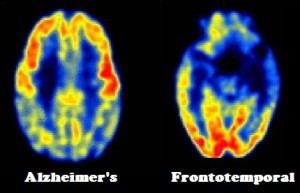Contact Us




Mrs. Rita- I not ta… bath, you go (signaling towards the door to leave)
House Help- Aunty lets go, it’s not good to stay without taking bath
Mrs. Rita- No , I sa..(said) no why don’t you understand , you better go otherwi.. no.. go..
House Help- No aunty, it’s too late… come we will go…
She holds her hands and takes her for bathing. Aunty reacts aggressively to the staff girl. She refuses to let her come close to her or help her with her activities of daily living.
This was one instance from the life Mrs. Rita, who suffers from Frontotemporal Dementia. While one may have been familiar with Dementia of the Alzheimer’s Type, this typology might not be heard too often about.
Dementia is an umbrella term used for a cluster of symptoms exhibited by a person including loss of memory, difficulties in executive functioning and changes in personality and behavior. It spreads to different domains of functioning, with the deterioration generalizing as it progresses. Alzheimer’s and Fronto Temporal are basically 2 different forms of Dementia that manifest different pathologies. A downfall in the functioning is what one is expected to experience, but the way it progresses as well as first symptom observed in these conditions are different. While medically one may understand how it is developed, living with a person who has this comes with its own set of challenges:
FTD or Frontotemporal Dementia affects the Frontal and Temporal Lobes of brain which are responsible for many of the functions like: reasoning, planning, speech, managing emotions, recognition and perception of auditory stimuli etc. Hence, when it comes to FTD, there are stark changes observed in the behavior pattern and personality of the individual that can make care giving as well as coping with them a difficult process for family members. Some of them are:
Impairments in short term memory and other cognitive faculties that are affected first in Alzheimer’s Disease like:
Speech problems in terms of understanding and communicating are largely affected in FTD patients, while for Alzheimer’s language deficits may exhibit at a much later stage. Primary Progressive Aphasia is one sub category of FTD that further explains the various types of problems one experiences with respect to language.
Now that we have understood how different these two conditions are, what we need to be clear about is the intervention and management of the condition once the diagnosis is received. Dementia of any form, calls for a comprehensive treatment plan. Medications along with good care are what counts in making sure our loved ones are leading a good quality life.
We at Samvedna Care aim to help seniors live happy, active and independent lives, in the comfort of their home and community through interactive caregiving.
Samvedna Care was established in October 2013 with two complementary goals – firstly to provide quality home care services to seniors with limited mobility and social interaction due to various constraints, and secondly to facilitate stimulating community interaction and participation.
Our Dementia Care services are –